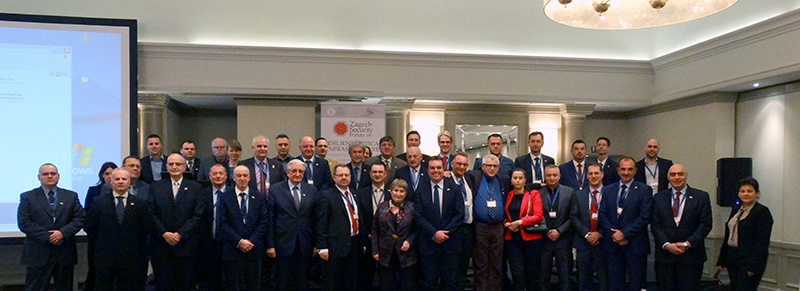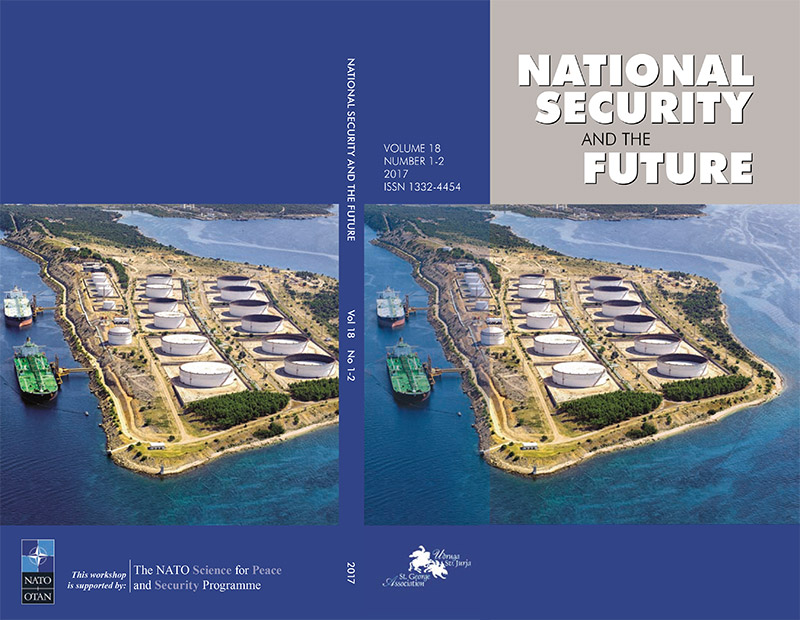The Second Zagreb Security Forum (Forum) on challenges and protection of National Critical Infrastructures (NCI) was held in Zagreb from 6th to 7th March 2017. It was organized by the non-government organizations Hybrid Warfare Research Institute and St. George Association and over the two days the participants discussed the resilience of the National Critical Infrastructure.
This gathering of recognized experts from the academic, private, public and state sectors from 19 countries was held under the auspices of the President of the Republic of Croatia and supported by the NATO Science for Peace and Security Program.
At a time of rapid globalization processes and new security challenges and sources of instability, it is not possible to talk about the protection of NCI outside the international context and multidisciplinary approach based on different experiences in the work on improving its security. The processes of planning, construction, use, maintenance, management, development and resilience of NCI, as well as its safe and smooth functioning are the exclusive responsibility of the State.
Forum organizers highlight the importance of developing public awareness of the need to protect and preserve NCI as the basis of security at national and international level, which is also contained in the NATO Warsaw Conclusions (2016).

 One of the key objectives of the process is the ability of civilian institutions involved in the protection and recovery of NCI from all kinds of threats - climate and natural disasters, cyber and hybrid threats, political instability and insecurity, conflicts, wars, terrorism, technical and technological incidents, outdated equipment and systems and the human factor.
One of the key objectives of the process is the ability of civilian institutions involved in the protection and recovery of NCI from all kinds of threats - climate and natural disasters, cyber and hybrid threats, political instability and insecurity, conflicts, wars, terrorism, technical and technological incidents, outdated equipment and systems and the human factor.
Taking into account the presentations of experts from the Second Forum, and comparing them with the situation in Croatia, the organizers in good faith propose a series of activities with the ultimate objective of creating a developed and resilient NCI:
- We firmly assert that NCI should serve the safe and sustainable development of the Republic of Croatia.
- We call attention to the need to develop the Strategy of Protection of NCI, which must stem from the fact that the Republic of Croatia, as an EU and NATO nation is facing both the imperative of fast development of a sustainable system of planning, use, protection and renewal of its NCI, and a number of challenges. An effective response to modern challenges involves the reconstruction of the current system of national security in accordance with the experiences of countries that are leading in the successful organization of preventive conservation of NCI.
- We stress the fact that the existing organizational solutions have not taken hold in the extent that was planned. The lack of a precise model of management of NCI protection and recovery process is evident. Therefore, we consider it necessary to establish a National Centre for Critical Infrastructure Protection (NCCIP) which would be an integral part of the future central government body competent for activities in the domain of Homeland Security. This would ensure that all the stakeholders of the system of NCI protection and recovery meet their legal and regulatory obligations and complete their tasks.
- We are committed to a strong (structural, organizational, communication, information) linking of experts from the public, private and academic sectors to state institutions.
- We underline the importance of institutionalizing public-private partnerships in order to protect the NCI, from the standpoint of operators of critical infrastructure, with the purpose of their full integration into the system of protection of NCI. That would create the foundation for coordination, exchange of information and knowledge, and defining procedures between the government and the private sectors regarding the protection of NCI.
- We affirm the idea of multilevel integration of databases and knowledge of all the necessary and essential sectors involved in the processes related to the development, building, management, control and protection of critical infrastructure in order to thwart possible threats.
- We encourage the application of the paradigm “knowledge for development" as the foundation for the design of critical documents on the protection of NCI.
- We emphasize the importance of the consistent implementation of existing legislation to protect the NCI, but also its further adjustments in order to clearly define the rights and obligations of all parties involved in the process of protection of NCI.
- We encourage the production of documents defining criteria for establishing what is or is not considered part of NCI.
- We underline the importance of protecting NCI because they are part of international infrastructure systems. Therefore, with regard to the rights and obligations of the Republic of Croatia in various international integrations and organizations and in accordance with international regulations, we encourage tighter integration and linking of Croatian NCI with similar systems in other countries, definition and use of the same terminology as well as possible joint actions to protect, use and renew certain parts of critical infrastructure.
- We propose establishing a central contact office within the National Center for the Protection of Critical Infrastructure with in order to have secure communication with other similar foreign systems and coordinate international activities in the NATO, EU and beyond.
- We indicate in particular the need for stronger networking of NCI of the countries included in the initiative of the President of the Republic of Croatia entitled “Adriatic – Baltic – Black Sea” as well as Croatia's friends in the eastern Mediterranean.

The Forum will continue to act with a view of strengthening the resilience of NCI; it will try to anticipate the challenges and foster cooperation and the exchange of knowledge and experience at the national and especially international level as well as propose measures and actions of preventing adverse actions against national and international interests of the Republic of Croatia, and EU, and NATO and its Mediterranean Partnership neighbors.